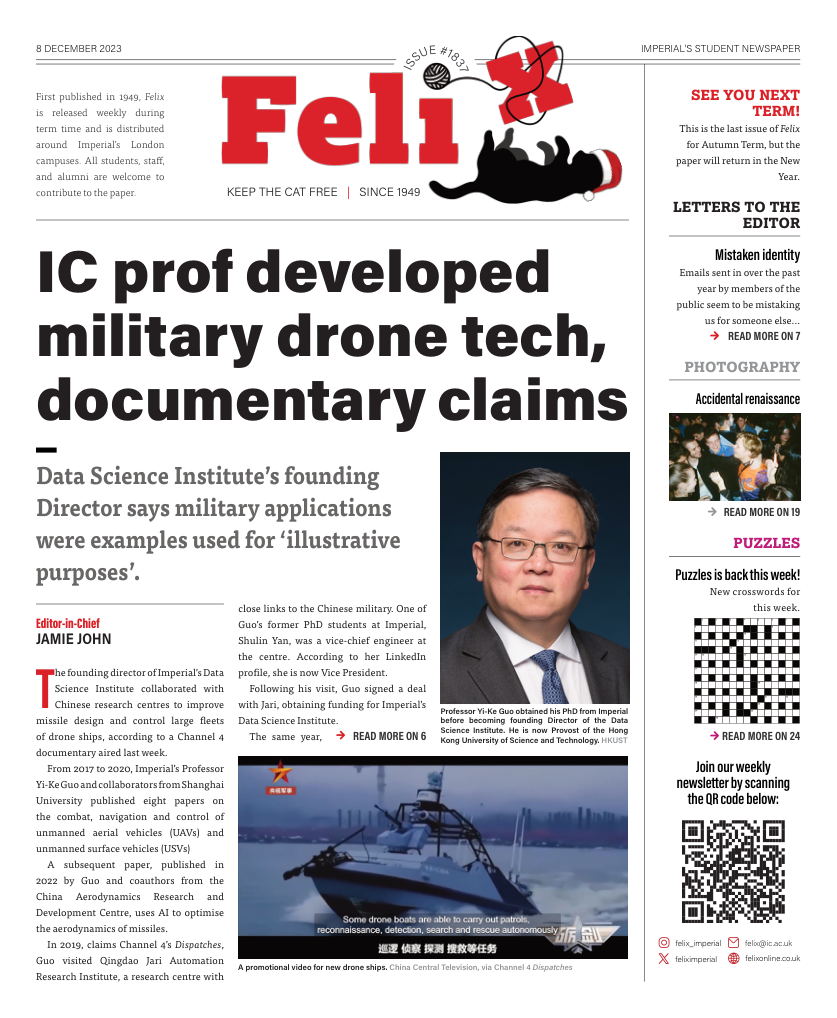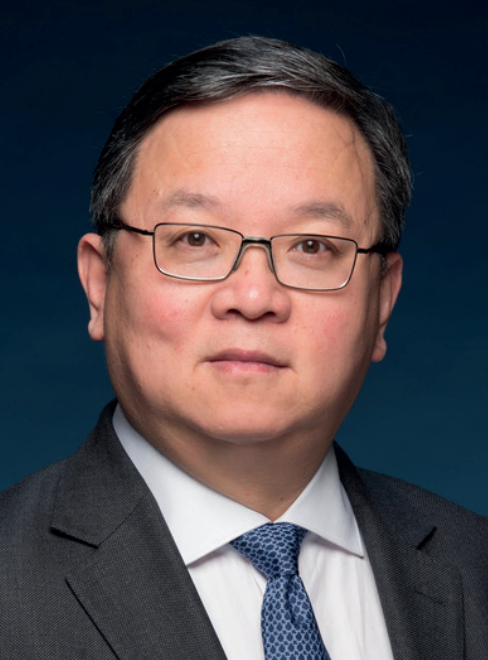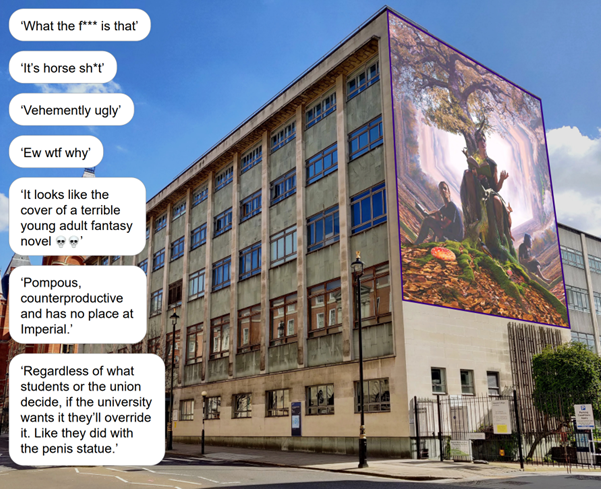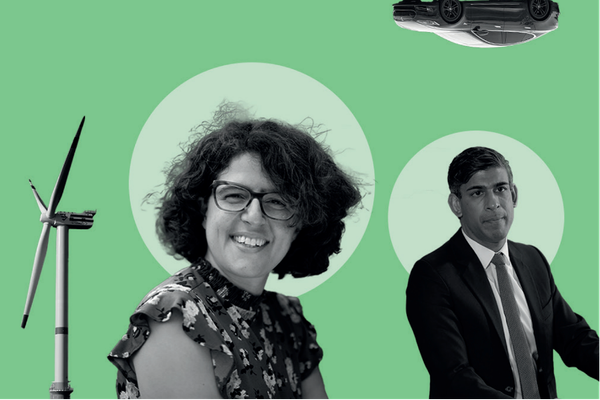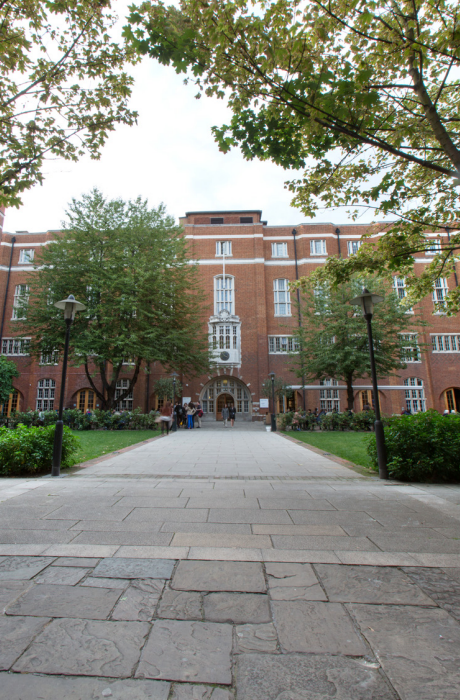The OT Interviews: Andreea Cojocea
In this series, Felix talks to the Union’s Officer Trustees. This week: Andreea Cojocea, DPW.
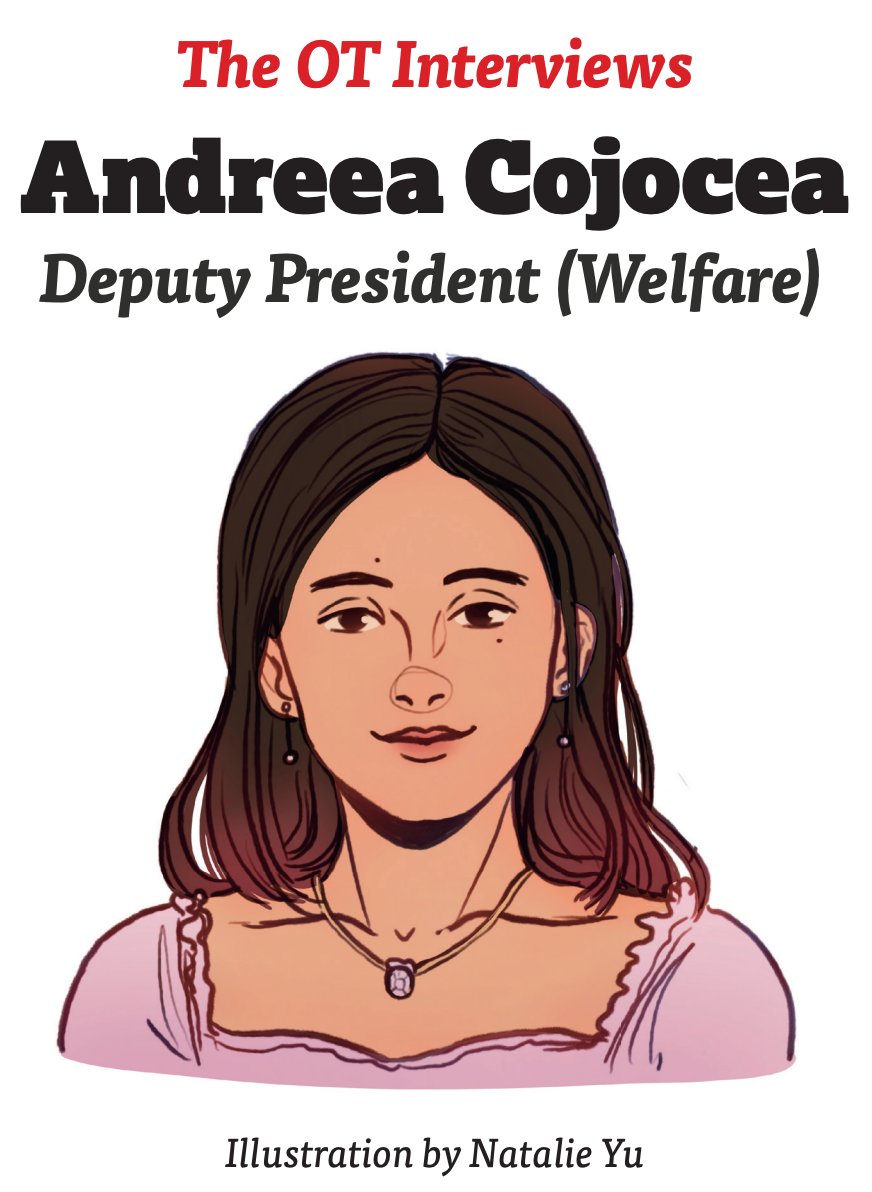
‘Avocado is extra, but so am I,’ reads one of the many stickers on Andreea Cojocea’s laptop. Extra is one way to put it – assiduous is another. She comes armed with a notebook filled with all of the projects she wants to talk about in our interview, and consults her laptop screen periodically as we talk.
Cojocea says she had a pleasant childhood. “I grew up in Romania. For 19 years, that’s where I lived – where I was born and went to school.”
Growing up with her parents (“They’re both philosophers, although they do different jobs now”) imbued her with a natural inquisitiveness.
During her school years, she says she was passionate about maths, which “fit in quite well with what the Imperial Bioengineering course offered.”
And so, in 2019, she moved to London to study at Imperial. “Overall, I’m happy I did it, although it was a big jump. My experience as a student at Imperial – not necessarily academic – has been tough.”
“When I came to study here, I had everything I had ever wanted for: an independent life, where I knew I could do whatever I wanted – I could have milk and cereal for breakfast, lunch and dinner.”
(She nods and laughs when I ask if she really did this.)
“I had an infinity of opportunities to make new friends and join clubs and societies, projects, and events in general. Anything that was fun.”
“But for some reason, I couldn’t have been sadder. Coming to Imperial impacted me negatively, especially my mental health. Some would blame it on the weather, others on the fact I was away from family.”
“Perhaps also there was something in the lack of support and signposting that exacerbated things. But more on that later.”
“And then, towards the end of my first year, when I was feeling truly lost, the pandemic hit. This is a very unpopular opinion, but I think it’s actually what saved my ‘career’ as a student. I was able to go back home, take some time off, and think about how I wanted to proceed with my study.”
“My second year was delivered mostly online, and that was actually my best year. I don’t want to be insensitive. I know the pandemic had huge negative impacts on the finances and wellbeing of many families – including mine – but the quiet aspect of it really helped me put things in order and reprioritise. I came back in third year more energised than ever, ready to take on the world.”
Third year was “a little chaotic”. “It was just a bit confusing to pay attention everywhere, both online and in person, and I had to commute from South Kensington to White City.”
In her fourth and final year though, Cojocea says she had “this rebellious tendency to take back the time I had spent at home in second year. So I joined lots of clubs and societies, and I found that becoming parts of groups, making friends and socialising with people, it helped me find motivation to carry on in my work.”
Her interest in her current role – Deputy President (Welfare) – can in some ways be traced all the way back to her childhood. “Growing up, I had an interest in my mental health, and why I had certain reactions to situations and why those might di er to other people’s.”
“It’s funny, I used to take all the certified personality tests to understand myself better. People in school would think I was a bit weird.”
“I was surprised then, given all this interest in maintaining good mental health, at how bad I felt in my first year. It felt like a contradiction of everything I stood for.”
“I don’t want to make it sound like I never had any difficulties growing up. Also, to some extent it’s normal to feel sad from time to time. Constant happiness is overrated, and maybe the fact we hold onto it so tightly creates unrealistic expectations.”
“But coming here was scary and I hadn’t anticipated the magnitude of it.”
“I also noticed that a lot of people around me were also dealing with poor mental health. I wanted to help out, but I didn’t know how to.”
“One big issue is that mental health is a theme that is still very stigmatised, so students find it difficult to reach out.
Coming here was scary and I hadn't anticipated the magnitude of it.
A lot of people at Imperial are international students like myself. So when we come here, we might not be familiar with the services that are available to us.”
Cojocea’s first foray into student representation at Imperial College Union (ICU) came when she joined the committee of IQ, Imperial’s society for LGBTQ+ students. “I was campaigns officer and I also became the liaison officer between the IQ Society and the LGBTQ+ Network.”
ICU’s Liberation and Community Networks are ‘run by students who identify with, ally with, or are interested in [a] particular group’. The nine networks provide communities and safe spaces for students, and organise campaigns to tackle problems their members face. They range from ‘International’ and ‘Ethics and the Environment’ (both Community Networks) to ‘Disabilities’ and ‘LGBTQ+’ (Liberation Networks).
“There are so many intersections that can occur when students are part of different groups, and that can lead to different needs. It’s important to understand and represent them,” explains Cojocea.
Her next big roles came in her fourth year of study, when she was a committee member for Feminist Society and Wellbeing Representative for her cohort.
Around halfway through the year, she realised that as a sabbatical officer of the Union, “maybe my voice is actually going to make a difference towards improving students’ experience.”
She spoke to a friend, and to Nathalie Podder, then Deputy President (Welfare), before running for the role herself.
Andreea's goals
Andreea lists four main goals on her ICU webpage:
- Improving mental health provision.
- Lobbying the College for more financial support in combatting the stress caused by the cost-of-living crisis.
- Taking action to decrease the occurrence of sexual misconduct on campus.
- Streamlining procedures for those in need of guidance and support.
“Something that is very exciting this year is that I’m working very closely with the College on the Mental Health Strategy action planning,” says Cojocea.
In June 2023, Imperial published its Mental Health and Wellbeing Strategy, which sets out how it will ensure students (and staff) get the ‘support and advice they need, when they need it.’ It consists of nine broad strategic goals, but, says Cojocea, “This year they are working on a more specific plan to make sure they actually achieve it.”
The Strategy action planning process is a good example of how the Union can improve student’s experiences. “Imperial values the Union’s input very much,” says Andreea.
“The way this is done is that we have a set of meetings with the College. We slowly progress, first by suggesting lots of ideas that could be implemented under the strategy.”
Andreea has already told Imperial that they could provide better training to departmental staff who have frequent interaction with students. “The first point of contact for students, for example, is their personal tutor – Imperial encourages this. So at the very least, the tutors should be aware of the services available to students, and signpost them when approached with issues.”
She wants to provide more in-depth training to personal tutors and other student-facing staff. “Mental health is a very important issue, and I don’t think simple discussions are sufficient. For example, something I’m doing right now is preparing to become a mental health first aider [MHFA].”
I point out that Physics students last year, students complained to Felix that MHFAs were telling students to ‘work harder’ when approached with problems.
“To be able to act in these cases, the College first needs to know, so I would recommend that students make a complaint against the specific staff member. There’s a form you can fill out, and you select whether or not you’d like to disclose your identity.”
“It’s alright to make staff aware that you’re not doing great or that the people that you’re in contact with are not being very helpful.” She also encourages students to reach out to her or to the Union’s Advice Service, which provides “confidential, nonjudgemental advice free of charge”. “This can be related to financial concerns, housing, academic misconduct, or bullying, and they can also signpost you to other resources.” We move onto her next goal, on the cost-of-living crisis.
“Something I’m trying to do here is to make sure we cover all students in terms of access to financial support,” she explains. (The College provides a bursary, but this is only accessible to home undergraduate students.)
“I’ve been doing research and the groups most impacted by the crisis are international students, students who are parents or carers, those with disabilities, and obviously all those from a financially disadvantaged background.”
Cojocea says she is also working with the Postgraduate Representation Chair to understand the costs specific to postgraduates, and with the Union’s Community and Liberation networks to identify those who might be in more immediate need of money.
Maybe my voice is actually going to make a difference.
"They might need access to financial resources to pay for emergency procedures, but not have access to them, as none of the existing funds are tailored to them.”
She is currently helping the College with its widening participation initiatives. “So encouraging more students to apply to university, and understanding why some groups might be facing barriers to higher education.” She says there will be student consultations this month, and that student feedback would be valuable.
Cojocea’s penultimate goal is to take action to decrease the occurrence of sexual misconduct on campus. “There’s a terrible lack of training about what we can do to be mindful of other people,” she says. “It’s an essential skill to develop.”
Cojocea says she would like to provide more training to students. This year, she was assured that training would be provided in halls. But staff shortages meant that the promise fell through, and instead, it was delivered online.
She would also like to create annual surveys on sexual misconduct at Imperial. “Doing it annually would help us to see if the results are replicable and draw conclusions.”
ICU’s last sexual misconduct survey report came out in 2021, and found that the Union’s bars were the most common venue for sexual harassment. Cojocea would seek to address this by providing training to Union bar security, though she notes this is made challenging by the fact that such staff work for external agencies.
She says Imperial is keen to raise awareness of its SafeZone app, that allows all students and staff to request immediate help from internal Campus Security if they feel unsafe.
“Something else I want to lobby the College on is to improve its consent training. I think it would be great to remodel it as consent and active bystander training. Because I think there are third parties in some situations where sexual misconduct can occur, and they have the power to help.”
“Reach out and talk to me”
Cojocea asks if she can conclude the interview with a message to students: “I want to take the opportunity to let students know that I would be very happy for them to reach out and talk to me about experiences that they are facing. Everyone experiences life differently, so any input that they have is highly valuable in anything. They can communicate through their reps or email me directly.”
She shared the following statement with Felix after the interview:
Current exciting activities I’m working on include:
- Consultations on your student experience (December 6th, 7th, 12th, 14th). More dates are to be announced subject to your expression of interest.
- Having set up Imperial’s first Parents and Carers Network, of which the first social event will be happening on the 13th of December and it is a Festive Mingle.
- Monthly Community & Welfare Forums where you can raise wellbeing-related issues with student reps and Liberation & Community Officers.

